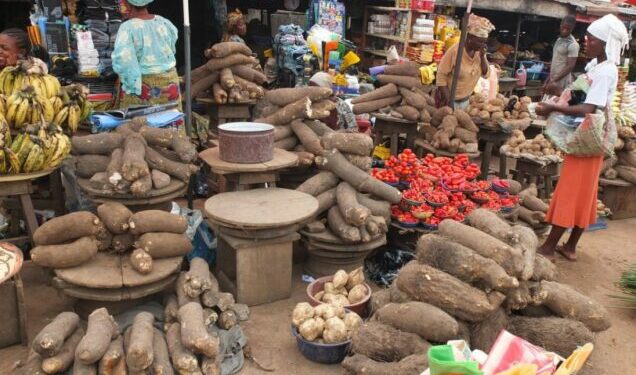Over 31.8m Nigerians are suffering from acute food insecurity compounded with malnutrition among women and children in the country.
According to statistics provided by the 2024 Cadre Harmonise report, the surge in food commodity prices which is a result of the removal of fuel subsidy in addition to security challenges, has placed millions of Nigerians in a precarious situation.
A statement by the Public Relations Officer of the Ministry of Budget and Economic Planning, Julie Osagie-Jacobs on Wednesday, said development partners which include the Food and Agriculture Organization (FAO), Green Action in Enterprises (GAIN), GIZ, Agsys, made the disclosure at the Joint review meeting on implementation of the Food systems in Nigeria, held from the 26th -27th August, 2024.
The findings indicate a sharp rise from the 18.6 million people assessed as vulnerable to acute food insecurity from October to December 2023 by the U.N. World Food Programme.
“The surge in food commodity prices, which is a result of the removal of fuel subsidy in addition to security challenges, has placed millions of Nigerians in a precarious situation,” the ministry said.
The stakeholders advocated for a multi-sectoral approach of collaboration in tackling food security, noting that it was a must, in addressing all the challenges simultaneously.
They noted that civil society organisations including the private sector must be involved to extend the reach of nutrition efforts.
The partners however pledged their unalloyed support to transform the food system in Nigeria.
The study was produced by development partners including the U.N. Food and Agriculture Organization, the Global Alliance for Improved Nutrition and the German development agency GIZ.
The study used statistics from a nutrition analysis by the Cadre Harmonise, a regional food security framework.
Sanjo Faniran, Nigeria’s national convener of Food Systems and director of social development in the budget and economic planning ministry, said the study helped to identify gaps, successes and challenges, and offer recommendations.
The report comes on the heels of rising food inflation above 40 per cent in the country.
The development is a fallout of the removal of fuel subsidies by President Bola Tinubu who took office in May 2023.
The removed fuel subsidies, according to the president, were to cut down on government spending, in a move that led to a rise in the cost of transportation.
Raids by bandits have forced many farmers to leave their fields, contributing to higher food prices.
Channels Television had last week, reported how the Nigeria Police Force said it had begun providing security for farmers in the Northern parts of the country, to enable them to go into their farms as the country enters into the harvest season.







